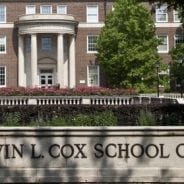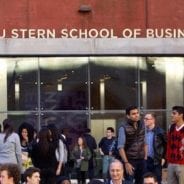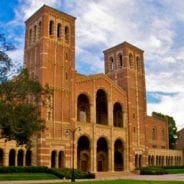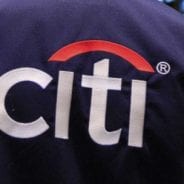Search results for career:
Harvard Business School Grad Salaries Jump Again
Harvard Business School (HBS) is the latest top business school to publish its employment stats for its most recent graduates. What are the top takeaways? Try starting salaries exceeding $160,000.
This year’s median base pay, $140,000, is up $5,000 over last year. In addition, 65 percent of the class earned median sign-on bonuses of another $25,000. There were also other upticks, with 14 percent of students reporting median guaranteed first-year comp of $28,500, up from 13 percent and $25,000 the year before.

Within three months of graduating, 95 percent of the class reported receiving at least one job offer, and 89 percent had accepted an offer. These stats were both unchanged year over year. When there’s a gap between the percentage of students reporting offers those accepting offers—as with these latest HBS grads—it’s often considered to be the reflection of a strong job market. Under these circumstances, graduates from the very top schools can bide their time and hold out for the offer that really wows them.
Financial Services, Consulting, Tech Vie for HBS Grads
In terms of industry, three dominate when it comes to hiring the latest HBS grads. Financial services drew the largest slice of the class—29 percent—which is off from 31 percent last year but on par with the year before that.
Consulting took another quarter of the class, 25 percent, up from 23 percent last year. Technology, meanwhile, beckoned to roughly a fifth of the class—19 percent, up from 16 percent last year. Other industries saw small shifts year over year of one or two percentage points.
More Students Join Startups
HBS changed its definition of a startup this year in terms of how it tracks employment data. Startups now refer to organizations that are still private and, at most, 10-years old. By this measure, HBS grads who opted to join a startup straight out of school make up 9 percent of the class, as compared to 8 percent last year. The median starting salary for graduates going into tech is $130,000—the same as last year. Half of the startups where students landed are in the technology space, up from 45 percent a year earlier. Other top industries for startups include manufacturing (13 percent), financial services (12 percent) and consumer products (6 percent).
Another 70 students in the Class of 2018—8 percent—founded their own startups. That’s up from 64 last year. Of this year’s new ventures, 28 have a social impact focus, up from 16 last year.
HBS Class of 2019 Internships
HBS also released employment data for the summer internships pursued by students in the Class of 2019, revealing a median base salary of $7,800, down $200 year over year. More students, 89 percent, sought internships this past year, up from 87 percent the year before.
More students in this most recent class pursued internships with financial services firms, 32 percent as compared to 26 percent of the class before. Meanwhile, slightly fewer students pursued internships in technology and consulting. Tech firms drew 18 percent of the class for internships, down from 20 percent the year before. Consulting interns made up another 15 percent, down one percentage point from the year before.
This article has been edited and republished with permissions from Clear Admit.
Real Humans of the SMU Cox School of Business
After 100 years, one can expect a few changes.
The Southern Methodist University Cox School of Business, nearing it’s centennial celebration, is a perfect test-case for how much change can mean. Founded in 1920 as the Department of Commerce, the Dallas metro business school has gently evolved from a modern Methodist research beacon into one of the most transformative schools in Texas.
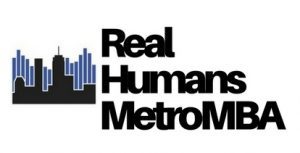
With over 11,000 students at SMU, including 5,170 graduate students, the Cox School of Business hosts nearly 600 MBAs in its various programs. For any Cox student, one of the definitive advantages of the business school is the advantageous proximity to Dallas’ thriving business community. Ten companies in the metro land within the Fortune 500 ranking. Among the group, four companies—Exxon Mobil, AT&T, Energy Transfer Equity, and American Airlines Group—land in the top 100, with two in the top ten. With high national regard, including a top 50 ranking for the school in U.S. News & World Report, plus the bevy of major companies as neighbors, these factors can seem overwhelmingly beneficial to a successful career.
When talking with members of the SMU Cox School of Business Professional MBA class, however, the allure of the program went beyond the obvious career benefits that Dallas can offer. For any well-regarded business school, the makeup of the class can seem familiar. The average GMAT for the PMBA Class of 2019 is 613. The GPA is 3.3. Most of the group has about five years of prior professional experience before enrollment. But just going off the bare statistics hardly tells the entire story.
To get a greater understanding of the SMU Cox School of Business Professional MBA class, we spoke with several current students, including a self-described “Army Brat,” a former law school student, and a consultant originally from Kathmandu, along with a handful of other future grads. Read on to see their stories and what the future may hold for life after an MBA.
NYU Employment Report Reveals Employment, Salary Jump
The NYU Stern School of Business released its 2018 MBA Employment Report at the end of last month, revealing that more graduates in the Class of 2018 had accepted full-time job offers three months after graduation than anytime in the past five years. Not only that, many recent grads reported a large jump in salary and bonuses. There are just a few of the highlights from this year’s employment report, which also Amazon topping the this of MBA employers for the second year in a row.
NYU Employment Offers and Salaries Increase
This year, 93.7 percent of MBA graduates from Stern had accepted full-time job offers three months out from graduation. This was up from 91 percent last year, and higher than every year since 2013. As for compensation, average base salary jumped 6.5 percent year over year, to $129,059. Average signing bonus, meanwhile, increased 7.5 percent, to $35,637.
“We begin working hand-in-hand with our MBA students on the recruitment process before they even arrive on campus for their first semester,” says Beth Briggs, Stern Assistant Dean of Career Services. “Our early and continuous engagement, coupled with the quality of our students and a strong employment market in New York City, has led to great results across a variety of career paths. For Stern’s MBA class, the percentage of graduates who accepted job offers within three months of graduation is the highest in five years. Average salaries, average signing bonuses and the number of students reporting signing bonuses have also increased over last year.”
Consulting and Investment Banking Lead Stern Industries
When it comes to where Stern graduates work, the data remains consistent. Consulting and investment banking are the two most popular industries, luring 28.4 percent and 26.2 percent of the class, respectively. This represents a slight increase for both industries over last year. In 2017, consulting drew 26 percent and investing drew 23 percent. Technology and telecommunications stayed steady at 16.5 percent this year, on par with 2017. The only other notable changes in terms of industry appeal were a small dip in consumer packaged goods (falling to 5 percent, from 7 percent last year) and a slight increase in law (rising to 4 percent, from 2 percent).
“While the top three industries employing Stern students are consulting, investment banking, and tech, graduates are pursuing roles in a range of diverse areas including growing industries like fintech,” Briggs explains.

Amazon Hires Most Stern MBA Graduates
Amazon took the top spot for the second consecutive year as the most prolific hiring company of NYU Stern grads. Other top employers of graduates from the Class of 2018 included Credit Suisse, McKinsey & Company, J.P. Morgan, IBM, and Bain & Company. About 77.6 percent of grads accepted jobs in the Northeastern U.S., and 13.2 percent went West.
The majority of students (49.7 percent) received offers of employment from the companies where they completed their summer internships. Of those who chose not to accept a job where they interned, 20.1 percent received an offer from an on-campus scheduled interview. In addition, about 9.7 percent found their job through Stern job postings. The rest of the class found jobs through personal contacts (6.3 percent), external job boards (4.7 percent), or alumni (3.1 percent).
You can view the complete NYU Stern 2018 Employment Report here.
This article has been edited and republished with permissions from Clear Admit.
Marketing Magic, The Business of TV, and More – New York News
Let’s explore some of the most interesting stories that have emerged from New York business schools this week.
Magic and the Modern Business World – Gabelli Connect
Gabelli School of Business Clinical Associate Professor Timothy Malefyt uses capital-M ‘Magic’ (think David Blaine, Siegfried & Roy, Penn & Teller) to explain how “magical practices can be found in contemporary capitalist societies.”
In his new book, Magical Capitalism: Enchantment, Spells, and Occult Practices in Contemporary Economies, Malefyt explains, “Magic offers a way to make a connection and effect change through willful beliefs and ritual practices.”
He elaborates:
“[In advertising] you don’t know if the customer will like this ad so similarly to how magicians rely upon magical rites, advertisers often use “formulas” to feel comfortable in their presentation to a client, such as habits surrounding the time they present or the way everyone is sitting at the table.”
You can read more about Malefy’s work here.
Binghamton University Student Approaches TV Production with Business Mindset – Binghamton SOM Blog
The Binghamton SOM Blog recently profiled business administration student Zach Homler, who has made significant early strides toward a promising career behind the scenes of film and television.
Following an internship on the Fusion and truTV variety talk show The Chris Gethard Show in which he “helped prepare celebrity guests such as Jason Sudeikis, Seth Meyers, Nick Kroll and Ellie Kemper,” he landed back-to-back PA (production assistant) gigs on Netflix and Amazon Prime shows.
Homler compares his experience to a case competition. “You have this project or this problem to solve, and you do some work, weigh your options, then present your recommendations to the decision makers.”
Homler hopes to pursue a career in either in entertainment law or talent management.
“This is me getting my foot in the door. I’m able to get that ground-up perspective of what goes into these productions, and I think putting in that work and understanding the day-to-day process is only going to help me on the business side of things. And so far, it’s been a lot of fun.”
You can read more from the recent interview here.
Fred Schaufeld Talks about Luck, Opportunity and Lehigh – Lehigh College of Business and Economics News
As part of its Distinguished Finance Speaker Series, the Lehigh College of Business and Economics recently hosted Fredrick D. Schaufeld (’81 ’15P ’17P), whose presentation Managing Luck: Lessons from Lehigh and Life When Not Everything Goes Quite as Planned contained many hard-won lessons from his career as Co-Founder and Managing Director of venture capital private equity firm SWaN & Legend Venture Partners.
Schaufeld offered three major takeaways for the audience:
- Failure does not equal death. “Wherever you are in your career, you’re building a portfolio of ideas, relationships, networking and skill sets. When you fail, you might go back a little, but you can build on that and keep going forward.”
- Your time is worth more than your money. “If you’re miserable, do it a different way or do something else.”
- Don’t wait for wisdom to find you. “You’re wealthy now, whether you realize it or not. I learned that at a relatively young age, with no money in my pocket.”
Schaufeld explains, “[SWaN & Legend] invest in special human beings who lead companies with social impact. Ethics mean a lot to us. We focus on companies people are passionate about,” such as KIND Healthy Snacks, Gwynnie Bee, Airbnb, Sugar23, the Washington Nationals, Washington Capitals, and the Professional Fighters League.
You can read more about the recent event here.
New MBA Jobs: Facebook, Pfizer, GM and More
Whether its an entry level Facebook jobs, or a position fit for an experienced professional at Kaiser Permanente or Salesforce, there’s always exciting new MBA jobs out there. Check out this weeks picks below, and apply for your dream job today! Don’t forget that we post new MBA job just like this every week on MetroMBA:
Merage Jumps in Rankings, UCLA Grows Greener, and More
Let’s take a peak at some of the biggest Los Angeles business school stories that have emerged this week.
UC Irvine’s Merage School Jumps Forward in The Economist‘s Rankings – UCI Merage School of Business News
University of California, Irvine’s Paul Merage School of Business jumped forward in The Economist’s 2018 ‘Which MBA?’ rankings, with a move from 39th to 37th in the U.S., and 56th to 52nd in the global standings.
Assistant Dean Jon Kaplan of Merage’s MBA and specialty master’s programs says, “[What is unique about the program] is our focus on preparing students to be leaders in a digitally driven world. When you combine that with our continuous efforts to attract the best and brightest students and to provide them a one-of-a-kind experience, you start to see the rankings improve.”
Earlier this year, Merage’s Executive MBA program was ranked 20th in the U.S. and 30th globally. Dean Eric Spangenberg reiterates the program’s focus on digital transformation.
“Our team has done a great job of pivoting our curriculum to focus on how digital technologies are disrupting all aspects of the business world—not just in Silicon Valley, but across industries,” he says. “Students recognize that, and they choose to come here. This climb in the rankings is evidence not only of our teaching excellence and outstanding career services, but of the caliber of students we’re attracting.”
You can read more about Merage’s place in the rankings here.
How Green is Your Campus? – UCLA Anderson Blog
UCLA Anderson School of Management alum Nurit Katz (’08), the university’s Chief Sustainability Officer, recently gave a report on five major movements that the school has made to become a leader in green campus design.
For one, the business school’s Marian Anderson Courtyard is shaded from the California sun by ZON Powersol umbrellas that not only provide shade, but also utilize solar power for USB mobile devices.
In addition to the use of solar power, the school uses a 42-megawatt cogeneration plant that provides heat, cool air, and electricity for major facilities on campus such as the Regan Medical Center. The plant is partially powered by biomethane gas from a nearby landfill. The use of the gas drastically reduces the campus’ carbon footprint.
UCLA Anderson Chief Sustainability Officer Nurit Katz recently explained the major ways the LA school is moving forward with green energy innovation / Phot via blogs.anderson.ucla.edu
Green roof installation is another way the school is implementing sustainable technology, as shown in the Safdie Rabines Architects’ designed Court of Sciences Student Center food hall. Drought tolerant plants combine attractively with the surrounding landscape to provide natural cooling and water collection methods, while also providing attractive outdoor gathering space.
The Semel Healthy Campus initiative is another example of the school’s commitment to sustainability. With a garden at the Sunset Canyon Recreation Center, this initiative focuses upon healthy solutions for the campus and its neighbors by growing plants for food and medicinal purposes.
Finally, UCLA is working to reduce carbon emissions in the infamously congested city of Los Angeles through the use of the Bruin Bike Share system. This allows students to rent bikes for commuting around campus, making the standard non-automobile transit more visible. The project also allows inexperienced bikers to pair with those who are more seasoned to learn the rules of the road.
Graziadio Women in Leadership Series to Feature Intuit Exec – Pepperdine Graziadio Events
Mary Ann Somers, Senior Vice President and Chief Commercial Officer at Intuit, Inc., will be a featured speaker at Pepperdine Graziadio‘s Center for Women in Leadership (CWL) discussion series on November 8, 2018.
With a background at companies such as Coca-Cola, Hershey, Unilever, and Colgate-Palmolive, Somers has a wealth of experience in reviving struggling brands. She will speak about the increasingly relevant trends in FinTech, and the ways in which it has transformed production and profitability.
Since 2015, the Center for Women in Leadership has strengthened and empowered women in the Graziadio community, and connected them with leaders such as Somers as they move forward in their careers.
Somers’ discussion will take place at the West Los Angeles Campus from 4-6 p.m. on November 8. You can register here for the event.
Full-Time MBA
Fisher College of Business Full-Time MBA Program Structure
The Ohio State full-time MBA program is an in-person, two-year program that includes 25.5 credit hours of integrated core coursework, 7.5 credit hours of experiential learning (Business Lab Project, Social Impact Challenge, Optional Global Applied Project), and 27 credit hours of elective coursework. The program requires a minimum of 60 credit hours to graduate.

Curriculum at The Ohio State Full-Time MBA
In addition to a theoretical base in business administration, Fisher prides itself in its action-based learning opportunities, such as field-based courses and business plan competitions, among other offerings. The full-time MBA program begins with a required three-week Take-Off, during which new students are introduced to the college and MBA core and participate in coaching and career development, among other forms of development. Core courses and experiential learning make up the entire first year to establish a foundation for electives and major courses in the second year. Each academic year is broken down into two semesters, and there are two seven-week sessions per semester. Some courses will span the entire semester, while others will be either the first or last seven-week session of the semester. The summer between the first and second years may be spent in an internship or on a Global Applied Project (GAP), a three-credit consulting project for an institution outside of the United States.
Full-time MBA students need 60 credits to graduate; 25.5 of these credits come from core courses, while 7.5 hours come from experiential learning and 27 are dedicated to electives, which allow students to focus their MBA. Instead of majors, Fisher MBA students may pursue optional pathways, such as asset management, brand management, entrepreneurship, and others, to support their career interests.
The Ohio State Full-Time MBA Rankings
• U.S. News & World Report: 37
• Bloomberg: 41
• Financial Times: 72
• Forbes: 41
• The Economist: 50
Class Profile
Fifty-nine new MBA students joined Fisher in the Fall of 2020. Forty-one percent of them pursued undergraduate degrees in business. Another 26% had studied social sciences and 25% the arts and sciences. Eight percent had majored in engineering. The average GPA was 3.45.
Upon matriculation at Ohio State Fisher, students averaged roughly four years of full-time work experience. The average GMAT score of incoming students clocked in at 666 while the average GRE composite score was 312. In total, 12% of students in the Class of 2022 are international, 36% are women and 15% identify as a member of a domestic minority group.
Career Statistics
Within three months of graduation, 90% of the Class of 2020 had job offers. Their average starting salary landed at $137,851. Financial services topped the list of industry choices at 32%. Tech followed at 17% and consulting at 16%. Nine percent chose the healthcare industry and 7% entered manufacturing. Another 4% joined consumer products and 3% went into retail.
Most of the Class of 2020 settled in the Midwest (65%). The next most popular destination was the Western U.S., which took in just 10% of graduates. The South, Southwest, and Northeast each saw 6% of MBA graduates, and the Mid-Atlantic region had 7%.
Tuition, Scholarships, and Financial Aid
Tuition and fees for the Ohio State Full-Time MBA for the 2021-22 school year is $31,139 per year for Ohio residents, with an estimated total cost of $53,605 with other expenses. Non-residents and international students can expect to pay $55,855 in tuition and fees, with a total cost of $78,321 per year.
Some examples of Fisher scholarship offerings include:
• Up to five scholarships for our MBA Specialization in Technology Entrepreneurship
• Diversity scholarships (ROMBA, Prospanica, NBMBAA, Forté Fellow)
• National Black MBA Association (NBMBAA) Scholarships
• International scholarships (Africa, South America, Europe, etc.)
• Active military and veteran scholarships
• Dean’s scholarships for Fisher/Ohio State alumnus
Admissions
Applicants must include the following:
• Academic Transcripts (official not required at time of application)
• Test Scores: GMAT or GRE (waiver available for military candidates that meet the qualifications)
• Resume
• Written Essays
• Optional: Letters of recommendation
• Video Interview
• Live Interview (invite only)
• $60 fee ($70 for international applicants)
The Ohio State Full-Time MBA Deadlines
| Round | Application Deadline | Decision Date* | Notes: |
|---|---|---|---|
| Early | October 16, 2022 | Nov. 18 | Apply early and join us for a Fall Preview Day |
| Round 1 | December 4, 2022 | Jan. 27 | Fellowship consideration deadline** |
| Round 2 | January 8, 2023 | March 10 | Red Carpet Weekend deadline |
| Round 3 | February 26, 2023 | April 7 | Priority funding/scholarship consideration & international deadline |
| Final Round | May 12, 2023 | June 23 | Final domestic application deadline |
| After May 12 | ASAP | Rolling Admission | Applications accepted on space-available basis*** |
Learn More About the OSU Deadlines here
Ohio State - Learn More
Interested in the Graduate Programs at Ohio State's Fisher College of Business? Fill out the form below and we will put you in touch!
New MBA Jobs: JP Morgan Chase, Bank of America Merrill Lynch, and More
It’s always good to see when MBA jobs flourish, with lots of MBA employment opportunities around the United States. Check out just a few of these exciting new MBA jobs at firms like JP Morgan Chase, Bank of America Merrill Lynch, General Mills, and more below. Continue reading…
Fisher College of Business – Ohio State University
History
The Ohio State University business school was originally founded in the spring of 1916 as the College of Commerce and Journalism, housed at Page Hall. In 1927, the school was renamed as the College of Commerce and Administration, just a few years before the establishment of the school’s MBA program. After decades of expansion, including the addition of an Executive Education program in the mid-1950s and numerous name changes, the school received a $20 million donation from ’30 alum Max Fisher. His gift helped officially rename the business school as the Max M. Fisher College of Business in 1993.
The Ohio State University Max M. Fisher College of Business’s MBA program is located on the main campus in Columbus, OH. Fisher offers a Full-Time MBA (on-campus), a Working Professional MBA (on-campus, online or both), and an Executive MBA program. Hallmarks of their MBA programs include:
· Personalized, hands-on curriculum
· Premier faculty and industry experts
· Wide-ranging electives, optional pathways
· One-on-one career coaching, mentorship and development
· Unforgettable experiential learning
· Intentionally small class sizes
· One of the largest alumni networks
· Career placement success
School Rankings
• U.S. News & World Report: 31
• Bloomberg: 41
• Financial Times: 72
• Forbes: 41
• The Economist: 50
Location(s)
The Fisher College of Business is located at the northern entrance of Ohio State’s main campus in Columbus, Ohio. The 370,000 square-foot complex is the largest multi-building project ever undertaken by the university and one of the few fully integrated management education campuses in the nation.
Facilities
Fisher’s campus features a state-of-the-art computer network, satellite up-link capabilities, video-on-demand and nearly 3000 computer ports. The $120 million project includes five academic buildings and a separately funded hotel, the Blackwell Inn and Conference Center.
Faculty
There are currently 93 tenure track, nine clinical track, 56 full-time non-tenure track members of the faculty.
Student Body
There are currently 7,835 full-time undergraduates at Fisher, 91 members of the 2019 MBA class, and 94 members of the 2020 class. There are also 392 enrolled students in the MBA for Working Professionals program, 32 in the EMBA program, 96 in the Master’s of Accounting class, 47 in the Master’s of Business Logistics Engineering, 38 in the Master’s of Business Operational Excellence, 107 in the Master’s of Human Resource Management, 56 in the school’s Ph.D. programs, and 59 in its Specialized Master of Finance program.
MBA Programs
The Ohio State Fisher College of Business offers full-time, part-time, and Executive MBA degrees.
Ohio State - Learn More
Interested in the Graduate Programs at Ohio State's Fisher College of Business? Fill out the form below and we will put you in touch!
Northwestern Kellogg & HKUST Lead the 2018 FT EMBA Rankings
Where should you go to school for your Executive MBA? Good question. While, the answer may not be quite so simple, an official EMBA ranking can help.
There are many things you should consider before choosing the best EMBA program for you including average graduation salary, industry employment, research interests, and more. However, a good place to start is with the 18th edition of the Financial Times Global Executive MBA Ranking. This ranking collects key data from business schools and alumni around the world to come up with a list of the top 100 best programs worldwide.
We’ve collated some of the critical data from the ranking study to give you insight into what’s going on in the world of EMBA programs.
EMBA Graduates Choose Industry and Manufacturing
Compared to full-time MBAs, EMBA graduates are much more likely to work in certain industries like manufacturing. In fact, three times as many EMBAs are employed in industry or manufacturing compared to their full-time peers. The figure accounts for 17 percent of all graduates. In comparison, only 10 percent of EMBA graduates are in consulting roles. And they’re less likely to work in finance, too.
EMBAs Earn More Money
EMBA graduates can also expect to earn more money than full-time MBAs after graduation. The average salary for an EMBA is $220,000 whereas an MBA alumnus can expect to make $146,000. It’s a large gap that’s similar to the salary gap between an MBA and a MiM graduate ($146,000 VS $67,000). Keep in mind, however, that the typical Executive MBA student is significantly older and often has more work experience.
In contrast, full-time MBAs win when it comes to salary boosts before and after earning the degree. MBA alumni generally increase their salary by 107 percent while EMBAs only experience a 59 percent boost.
Top 10 EMBA Programs
This year, the top ten EMBA programs, according to the Financial TImes, includes four joint programs. In fact, these were the top four programs in the world ranking well for post-EMBA salary, alumni leadership positions, and work experience. Each of these programs offer excellent networking opportunities thanks to different cohorts across different campuses, connecting students around the world.
Here’s how all the rankings stacked up.
1. Northwestern Kellogg & HKUST
This joint program ranks first for the third year in a row, and it’s the ninth time in 12 years that it has headed the list—the other three times it ranked second. The program is known for having the highest average salary three years post-graduation, $507,000—$140,000 more than the second-highest salary. It’s also known for having half of its alumni as company leaders three years post-graduation.

No EMBA has dominated the annual FT ranking quite like the Northwestern Kellogg & HKUST join program, earning top billing once again for 2018.
2. HEC Paris, LSE, & NYU Stern
This trium global EMBA program ranks second in 2018, up from fifth the previous year. The program is ranked first in work experience, languages, and international course experience rank. It also ranks highly in average salary ($347,970) with an expected 60 percent salary increase three years post-EMBA.
3. Tsinghua University & INSEAD
For the second year in a row, the Tsinghua-INSEAD dual degree MBA comes in third overall on the FT EMBA ranking. Located in China, Singapore, France, and the UAE, the program is known for its high salary three years post graduation ($365,746), and its high percentage of female students (45 percent).
The rest of the top ten shakes down as follows:
- EMBA—Global Asia: Columbia Business School, HKU, & London Business School
- Ceibs
- HEC Paris
- Washington University Olin Business School
- Shanghai: Jiao Tong University Antai
- IESE Business School
- MIT Sloan School of Management
Surprising Schools
There were quite a few surprises in this year’s EMBA ranking.
- Though HEC Paris has ranked in the top five since 2006 because of its joint program with NYU Stern and LSE, this was the first year the school entered the top ten ranking on its own. The HEC Paris solo EMBA program ranks sixth overall, making it the highest new entrant.
- IESE Business School took home the crown as the top EMBA program for the new criterion corporate social responsibility (CSR).
- The University of Toronto Rotman School of Management EMBA moved up the most places in 2018, rising to 47th place overall—20 places higher.

No school saw a bigger rankings jump than the University of Toronto Rotman School of Management, rising 20 spots in 2018.
FT EMBA Ranking Methodology
To come up with the 2018 EMBA ranking, the Financial Times reached out to a record 139 programs with two online surveys: the first completed by the school and the second by alumni who graduated from programs in 2014. The methodology of the ranking is as follows:
- Alumni were required to provide feedback on salary today, salary increase, career progress, work experience, and aims achieved—accounting for 55 percent of the ranking’s weight.
- Schools provided insight into ten criteria, accounting for 35 percent of the total ranking. Criteria included: gender and international diversity, board members, international program reach, and more.
- Accounting for the final 10 percent of the ranking was the FT research rank, which looks at the number of articles published by a school’s full-time faculty.
And, for the first time ever, this year’s EMBA ranking included a new criterion for corporate social responsibility (CSR). This new criterion took a look at how many of a school’s core courses were dedicated to ethics, social, and environmental issues. Weighting at 3 percent, this criteria replaced the number of Ph.D. graduates per school.
Wharton Reveals 2018 MBA Employment Report, Announces $25 Mil Gift
Lots of news out of the Wharton School at the University of Pennsylvania recently. Employment statistics have been published for the most recent graduating class, and a big donation will fund a cool new building dedicated to entrepreneurship in West Philadelphia as well as more international scholarships for undergraduates.
Here’s what’s going on at the Wharton School.
Penn Employment Report (2018)
The 2018 MBA Career Report revealed a slight increase in job offers and salaries with finance drawing in more students than ever. In 2018, 36.9 percent of full-time MBA graduates went into financial services (up from 33 percent last year). Consulting lured the second most graduates at 25 percent, down from 28 percent in 2017. As for technology—the third most sought-after industry—this year there was a small dip down to 14.9 percent from 16 percent in 2017.
Employment Summary
Overall, of the 77.9 percent of Wharton MBAs seeking employment, 98.4 percent received a job offer 90 days post-graduation, and 94.6 percent accepted. For the remaining 17.2 percent not seeking employment—140 students—84 returned to their current company (60 percent), 34 started their own company (24 percent), 17 postponed their job search (12 percent), and five students gave another reason (3 percent).
As for top employers, many prominent companies hired two or more graduates including Accenture Strategy, Facebook, Amazon, Apple, Bain & Company, Deloitte Consulting, McKinsey & Company, Microsoft, and Tesla.
Salaries Rise
Wharton MBA salaries continued their climb, with the school reporting a $5,000 increase in total median base salary, bringing that figure to $135,000 in 2018. The highest median salary—$180,000—went to graduates heading into professional services, followed by venture capital at $175,000 and hedge fund managers at $162,000.
As for regional differences in salaries, the 42.7 percent of Wharton MBA graduates who accepted positions in the Northeastern United States commanded a median salary of $140,000. Another 23.2 percent of grads headed to the West, where the median annual salary was $135,000. The Mid-Atlantic region of the U.S., with its median annual salary of $139,000, drew the third largest percentage of grads, at 7.7 percent. Interestingly, those who took jobs in the Midwest and South reported the biggest paydays, with a median salary of $150,000. This was trailed by the Southwest, with a median annual salary of $145,000.
Another 11.7 percent of the graduating class sought post-graduation employment outside the United States, where salaries on the whole were lower. In Latin America, the median annual salary is $92,000. Salaries are slightly better in Europe, where the median is $119,000, and best in Asia, at $126,000.

$25 Million Gift for Scholarships and New Hall
Right on the heels of publishing its employment statistics last week, the Wharton School also announced a $25 million gift. The transformative gift will go toward constructing Tangen Hall, the first-ever dedicated space for cross-campus entrepreneurship at the University of Pennsylvania. It will also establish an international scholarship fund.
“This gift not only represents a profound commitment to Penn and Wharton student financial aid; it also energizes our entire campus community through Tangen Hall, a game-changing facility for innovation, entrepreneurship, and technology,” Wharton Dean Geoffrey Garrett said in a press release.
Alumnus Donation
Nicolai Tangen, the founder of London-based investment partnership AKO Capital and 1992 Wharton undergraduate alumnus, encouraged the AKO foundation to donate as part of Wharton’s More Than Ever fundraising campaign.
“Katja and I are continually inspired by Penn students and pleased to have the opportunity to engage with them and set them up for success,” Tangen says. “We look forward to their many achievements in the years ahead and to witnessing how this new building will bring together the next generation of entrepreneurs, leaders, and innovators to share their talents with one another and for the greater good.”
Tangen Hall
Tangen Hall will be located at 40th and Sansom Street, offering students almost 70,000 square-feet of space to pursue entrepreneurial goals. The hall brings together students from across the university to participate in the new Venture Lab. Also, the building will become the new home of many entrepreneurship-focused programs including:
- Penn Wharton Entrepreneurship
- Goergen Entrepreneurial Management Program
- Weiss Tech House
- Sol C. Snider Entrepreneurial Research Center
- Wharton Small Business Development Center
- The Master’s Level Integrated Product Design Program
Tangen Hall will have dozens of meeting and collaboration spaces for students, retail space for student ventures, a test kitchen, a maker lab with 3D printers and laser cutters, a VR cave, and a café.
“Tangen Hall marks a new chapter for the entrepreneurial community at Penn and in Philadelphia, providing a central hub for the groundbreaking innovations that happen here every day,” Wharton Vice Dean of Entrepreneurship and Innovation Karl Ulrich says. “This physical space will allow faculty to more strongly support students who turn ideas into outcomes that will transform business for years to come.”
Construction will begin in 2019 with completion slated for 2020.
International Scholarship Fund
Beyond Tangen Hall, the $25 million will also go toward a new Katja and Nicolai Tangen International Endowed Scholarship, which will provide funding for international undergraduate students. The goal is to help students who could otherwise not afford a Penn education.
It’s the fourth scholarship made possible thanks to the AKO Foundation and the Tangens. So far, they’ve supported a total of 22 Penn students since 2012.
“We are profoundly grateful to Nicolai and Katja Tangen for their extraordinary commitment to extend opportunities for entrepreneurship to all Penn students,” Penn President Amy Gutmann says. “We are also grateful that Nicolai and Katja are expanding their steadfast scholarship support, enabling the best students from every part of the world to attend Penn, to thrive in their studies, and to serve communities worldwide.”
This article has been edited and republished with permissions from Clear Admit.
Chicago Booth, Northwestern Kellogg Top Economist 2018 Rankings
The newest Economist best MBA rankings for full-time programs is officially out, with two Chicago schools topping the list.
Investing In U.S. Innovation, and More – Boston News
Let’s explore some of the most interesting stories that have emerged from Boston business schools this week.
The 1 Thing Your Company Should Add To Its Retirement Benefits – MIT Sloan Newsroom
MIT Sloan Professor Lotte Bailyn took part in a three-year research study under HBS Professor of Business Administration Teresa Amabile to understand the “organizational, social, and psychological forces that can affect people’s retirement experiences.”
Bailyn outlined two strategies to help “pre- and early-retirement individuals manage their transition out of the workforce”:
- The “Phase-down” strategy enables a “retiring employee to work less while receiving a percentage of their pay, plus benefits. At the end of the phase-down — which can range from months to a handful of years —the person retires.”
- The “Contracted rehire” strategy allows companies to hire back employees on a contractual basis, which Bailyn explains, “allowed the company to get the specific niche knowledge that that person has, and by working with other people, employees in the organization could pass on that knowledge.”
Questrom School of Business Professor of Management Tim Hall, one of the researchers on the study, adds, “It’s surprising how little employing organizations are doing to help them [transition]— even though at the same time they’re interested in maybe helping people move on and opening up opportunities for younger people, they’re not. I think there’s a great opportunity cost they’re suffering by not doing that.”
You can find more information on the study here.
How the U.S. Can Rebuild Its Capacity to Innovate – Harvard Business Review
There is a growing trend of companies across all industries choosing to “invent and manufacture abroad” in what Harvard Business School’s Willy Shih describes as a loss of “industrial commons.” According to a recent Harvard Business Review article, “nearly half of the foreign R&D centers established in China now belong to U.S.-based companies.”

“Over recent decades, VCs have overwhelmingly focused on software and biotech investments over ‘hardware’ investments, closing additional doors to manufacturing innovations. It’s no wonder that so many promising manufacturing enterprises have to look abroad to simply get off the ground—let alone soar,” writes Sridhar Kota, Justin Talbot-Zorn, and Tom Mahoney.
The article recently outlines four principles the U.S. could use to reinvigorate its industrial ecosystems.
- Don’t Fear Picking Winners: “Rather than allowing promising R&D results to languish in labs or even be commercialized by foreign competitors, the U.S. should launch a National Innovation Foundation to invest in engineering and manufacturing R&D to mature emerging technologies and anchor their production onshore.”
- Invest in Hardware Startups and Scale-Ups: “U.S. policymakers can … build on existing resources to help innovative hardware startups and scale-ups succeed—particularly through domestic government procurement [the way] China has employed government procurement, strategic technology transfer, and domestic technology development to build its respected high-speed rail industry.”
- Mind the Mittelstand: Small and medium enterprises (SMMs) “amount to about 250,000 firms, or 98 percent of all manufacturing firms. By strengthening and supporting these firms, the U.S. could rebuild the backbone of its manufacturing sector.”
- Power to the People: “While American high schools typically require students to dissect a frog, few require students to disassemble a power tool. Exposure to real-world engineering is a crucial and cost-effective way to build interest in manufacturing careers—through either four-year engineering degrees or vocational training.”
You can find the entire HBR article on re-investing in American industry here.
Legacies Catching On – Carroll School News
BC Carroll School of Management Professor of Information Systems Gerald Kane recently put together a new research report as part of a gig guest editing the MIT Sloan Management Review’s Digital Business Initiative. The report, Coming of Age Digitally: Learning, Leadership, and Legacy, emphasizes the need for companies to foreground experimentation in their “digitally maturation” processes.
According to the Carroll School News, “Nimble businesses create the conditions for employees to take risks and try new things. The key to [prepare] for more digital disruption is to not simply hire but develop digital leaders.”
“Part of developing leaders means giving employees the time and space to acquire new skills, an area where many companies need to improve. Ninety percent of survey respondents said they need to update their digital skills at least yearly—and 44 percent said they need to do so ‘continually.’ Yet at ‘early-stage’ companies (which are paradoxically often the older companies), nearly 30 percent indicated that their employers offered little to no support to do so.”
You can read more about Kane’s research here.
Lehigh’s Online MBA Earns Top Ranking Honors
Sponsored Content
Lehigh moved into Poets&Quants‘ top 5 online MBA programs in 2019. Up one spot from 2018, Lehigh ranks No. 5 out of 35 programs in the country.
In the news website Poets&Quants‘ second annual ranking of online MBA programs, other graduate schools and recent graduates from the past two years were surveyed. Rankings are based on three key aspects: the quality of the incoming student, an assessment by graduates of their MBA experience, both the academic and the extracurricular activities, and the career outcomes of the programs’ graduates.
Graduates surveyed answered questions regarding consulting projects and international immersions and whether their career goals were met for entering the program.
The Lehigh FLEX MBA Program provides the flexibility to fit professional and personal needs in an academically rigorous environment, with an unparalleled peer group. Students can attend classes in person or live online, or bridge both modes.
For the Spring 2019 entering class, apply by Dec. 1 for admission.
To learn more about the synchronous Lehigh FLEX MBA online program, visit https://cbe.lehigh.edu/academics/graduate/flex-mba or contact the college at business@lehigh.edu.
To learn more about the Lehigh University College of Business and Economics Online MBA, you can visit the official Lehigh University College of Business and Economics website.
Business School Degree Cheat Sheet: What Type of Degree Should You Get?
An MBA is the most common type of master’s degree for b-schoolers, as it encompasses a vast array of skill sets and opens the door to roles in a multitude of industries. Though the MBA is versatile, there may be another high-level graduate degree that is better suited to your individual needs. No need to go cross-eyed looking through each school’s offerings to figure out which degree is best for you. We’ve created a cheat sheet to help you find out what type of business school degree is right for you.
Rotman Prof Talks Gender Equality and More – Toronto News
Toronto’s finest business schools have been doing their part to improve the landscapes of work environments and executive education. We’ve laid out this week’s highlights below.
Companies Find One-Stop Shopping for Executive Education – The Globe and Mail
Western University Canada’s Ivey Business School recently launched The Ivey Academy, a full-service learning and development center for executive education. This is good news for companies like Bruce Power LP, as they have been partnering with Ivey for years on leadership development education. Now, Ivey can also offer them services like corporate retreats and talent assessments.
“It would be nice to be able to [undertake executive education] with someone who knows us really well and knows a lot of our leaders really well and knows what our issues are,” says Cathy Sprague, Bruce Power LP Executive VP of Human Resources.
“We’re not the experts at everything,” Mark Vandenbosch, Dean of Ivey Business School, says in a recent interview in The Globe and Mail. “So … let’s figure out who are the people that we believe are up to the standards that we preach…so that when you put the parts together it’s more of a journey than a set of interactions.”
You can learn more about The Ivey Academy here.
Gender Equality In the Workplace: How Men Can Move the Needle – The Telegraph
Sarah Kaplan, Director of the Institute for Gender and the Economy and Strategic Management Professor at University of Toronto’s Rotman School of Management, interviewed two executives about the role of male executives in increasing workplace diversity (specifically, gender).
Kaplan spoke to Richard Nesbitt, President and CEO of Global Risk in Financial Services and adjunct professor at Rotman, and Kevin Lobo, Chairman and CEO of Stryker Corporation, and Director on the board of Parker Hannifin. The executives agreed that creating resources for women and determining their needs in the workplace is essential to creating an inviting environment.
“It’s important to have an official women’s network with an executive sponsor,” Lobo says. “I would advise people to put a thoughtful structure behind the initiative, give it a budget and empower people to run it effectively.”
Lobo emphasized that this course of action was a game-changer for Stryker. Stryker now has a mentorship system, so that women in the company have someone to talk to about their career path.

Sarah Kaplan, Rotman School of Management professor and Director of the Institute for Gender and the Economy.
“In academia,” Kaplan writes, “there’s a concept called ‘belonging uncertainty’: If you’re in an environment where you’re not sure that you belong—for example, if you’re a woman working in capital markets—you’re constantly looking for signals that you do belong.”
You can read more from Kaplan’s interviews on workplace gender equality here.
20-Years-Old, 20 Percent Down On A House. It’s Possible – The Globe and Mail
The Globe and Mail recently dug into the housing market, citing the story of a 20-year-old man who saved enough money to buy himself a house; a modern rarity. The man is an exception in the Canadian market, where the average price of a home is $475,000 CAD, and obtaining a mortgage is increasingly difficult. Moshe Milevsky, Finance Professor at York University’s Schulich School of Business, weighed in on Gen Y’s housing issues.
“People have to twist themselves into a pretzel to get themselves into houses,” Milevsky says. The article recommends utilizing options like the Home Buyers’ Plan, which lets buyers withdraw a certain amount from their registered retirement savings plan (RRSP) with 15 years to repay it.
Check out the rest of the article here.
New MBA Jobs: CitiGroup, Cisco, IDEO and More
New and exciting MBA jobs are posted to the careers pages of great companies every week. Here’s a rundown of some of the latest and greatest opportunities for MBAs at corporate offices around the United States:
Are Business Schools Equipped to Handle Climate Change?
The United Nations’ panel on climate change issued an alarming warning earlier this month. In order to avoid worsening events such as increasingly deadly storms and heat, the extinction of coral, and ever rising sea levels, member nations must act fast. Global leaders of business must pay particular attention to this warning, as the world economy will need to transform in order to support the vital decrease of carbon emissions.



